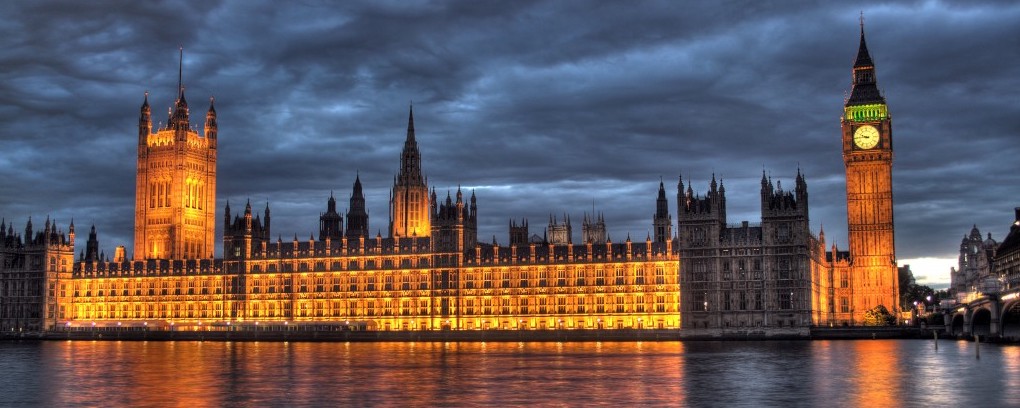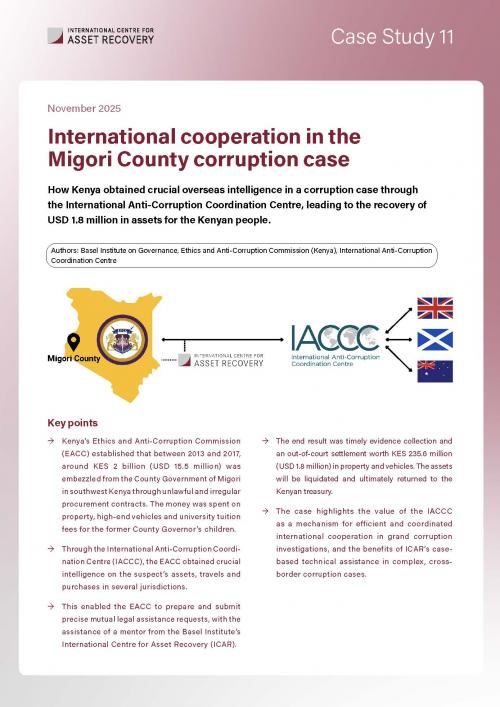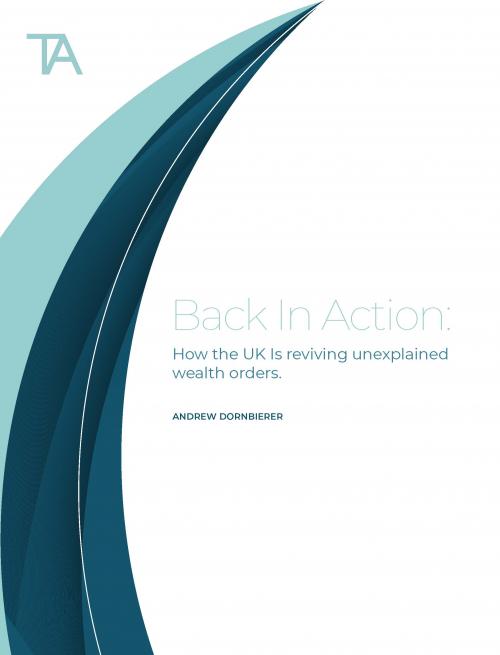UK’s Anti-Corruption Strategy endorses Collective Action and will encourage the creation of High Level Reporting Mechanisms

The United Kingdom published its first Anti-Corruption Strategy (2017-2022) on 11 December 2017 in fulfillment of its pledge made at the London Anti-Corruption Summit in May 2016. Most interesting for us at the International Centre for Collective Action is the UK Strategy’s commitment to support “strengthened business-led collective action to reduce corruption” that is tucked away as the fourth goal of the Strategy’s fifth priority to improve the business environment globally. This commitment reflects the UK Bribery Act 2010 Guidance on what constitutes ‘adequate procedures’ for the private sector. Principle 2 of that Guidance titled ‘top-level commitment’ specifically identifies Collective Action as a way for companies to demonstrate adequate procedures of internal and external communication of their commitment to prevent bribery.
There are scarcely any examples in which a national Anti-Corruption Strategy offers such a clear endorsement of business-led Collective Action, although the G20 has consistently cited the need for such approaches in their communiqués in the last few years. A recent review of 44 national anti-corruption strategies led by Norton Rose came to just such a conclusion, and noted that engagement with the private sector as a means for corruption prevention was not commonplace. The UK Strategy’s endorsement of Collective Action includes pledges to support four different fields. For one, the UK pledges to sponsor relevant B20 and G20 anti-corruption events. It will also work with national industry bodies to promote anti-corruption guidance and compliance tools for SMEs in the UK.
To promote inward investment, the Strategy further pledges support for business-led anti-corruption initiatives focused on professional service providers in the UK. This seeks to encourage further action by the private sector building on the Professional Services Leaders’ Statement in Support of the London Anti-Corruption Summit, a statement signed by 31 Managing Partners and CEOs of leading global law firms, auditing and accounting firms, and property and real estate services firms. This statement emerged in part due to the increased spotlight and pressure for reform given the important role that non-financial professional services firms should play as “gatekeepers” against corruption, rather than enablers of it, in light of the Panama and Paradise Papers leaks.
Since the London Anti-Corruption Summit, several of the companies that signed the Statement have recognised the importance of bringing major industry players together to establish clear ethics rules that will apply to all and ensure a level playing field. These fledgling efforts to get anti-corruption Collective Action underway have been proposed as the Professionals against Corruption initiative. With committed support from the UK government for this initiative, we look forward to seeing this initiative coalesce to develop robust industry standards.The fourth and final element of the UK Strategy’s support for Collective Action is its pledge to encourage other countries to establish High Level Reporting Mechanisms (HLRM) as a tool for corruption prevention building on the experiences of Argentina, Colombia, Ukraine, and Panama. This is part of the UK Government’s commitment to work with UK business to address corruption risks in targeted markets and sectors, following the priorities of the UK Industrial Strategy.
The Basel Institute is pleased to see the UK promote the adoption of HLRM models in high-risk markets, particularly high-value tenders. An HLRM is tailored to the country context and seeks to protect the public procurement process, by preventing bribery or other forms of corruption through innovative and strategic collaboration between the public and the private sectors. It creates an early reporting channel that companies can use to report issues that might otherwise lead to favouritism of a particular bidder or other forms of unfair treatment, including indications of bribery solicitation, and are designed to provide a swift resolution of such allegations. The HLRM aims to reduce collusion risks while ensuring that a procurement process remains on track, preventing retaliation against companies and business losses as part of the procurement process.
The Basel Institute and OECD have joined forces to promote the model in pilot procurement projects and was supported by the UK Embassies in Panama and Peru in the early stages of developing the HLRM that included preliminary analyses, meetings with governments and private sector actors to explore the creation of an HLRM in the respective countries.
Of course, a strategy can only be measured by the extent to which it is implemented. The UK Government’s support for Collective Action is but one of a multitude of action points endorsed by the Government. The Basel Institute nevertheless welcomes the inclusion and support for Collective Action in the UK Strategy and encourages businesses and other actors to call upon the UK Government’s support for Collective Action in industries and the promotion of the HLRM model in foreign markets where these collaborative tools can be deployed to reduce corruption risks. The Basel Institute acts as a facilitator to a wide variety of Anti-corruption Collective Action initiatives and is a one-stop-shop for advice and support to anyone interested in developing a Collective Action initiative and can be contacted here.



